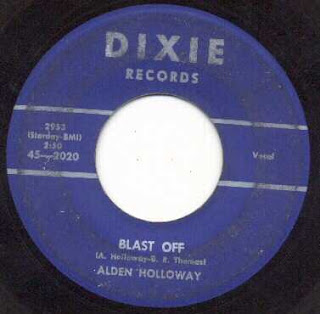 |
Melody Hall advertisement for shows in May and June 1963
|
If you were living in Springdale or Rogers, Arkansas, during the early 1960s, you were probably attending live music shows at one of the many local venues. One of those places was Melody Hall, a live music venue located on Highway 71 near Springdale, Arkansas, across A.Q. Chicken, a restaurant that is still in business today. It seems that the Melody Hall building was demolished and the place is now home to a gas station. The hall was only in business for a short time, approximately for two years, at least we found no mention of concerts outside of this time frame.
Although I tried to research the history of Melody Hall, the whole story of it remains blurry. We first find mention of this venue in 1961, when Billboard magazine reported that several top names in country music were booked by Russell Sims, a promoter and manager who worked with T. Texas Tyler early in his career and formed his own Sims Record label in 1953. Sims in turn was associated with Don Thompson, who owned KRMO radio in Rogers, Arkansas, and Cimarron record label in Tulsa, Oklahoma. Sims worked for Thompson's Cimarron label for a short time and through this connection, he booked a couple of top acts into Melody Hall in 1961.
 |
Billboard March 9, 1961
|
In March 1961, such acts as Ernest Tubb, Grandpa Jones, Floyd Tillman, Johnnie Lee Wills, Autry Inman, and Dub Dickerson performed there. Also performing that month were Leon McAuliffe and Marvin McCullough, both artists retained strong ties to Arkansas. McAuliffe, once steel guitarist for Bob Wills and at that time band leader of his own Cimarron Boys based in Tulsa, moved to Rogers, Arkansas in the 1960s, co-owned a radio station and performed in the western part of the state regularly during this time.
The Melody Hall continued to feature more top acts through the next two
years and we find mention of several stars through newspaper ads,
including Lefty Frizzell in April 1963, followed by Tommy Duncan and Stonewall Jackson in May, and Wanda Jackson in June. However, I wasn't able to spot any more mentions of Melody Hall after summer 1963 and it seems that the venue closed soon after.
If anybody out there has more information on Melody Hall, its owners, or musicians that appeared on its stage, please feel free to share your information with us!
Sources
• Russell Sims Find a Grave Entry
• Billboard articles (see depicted snippets)
• Billy Parker, John Wooley, Brett Bingham: "Thanks - Thanks a Lot" (Babylon Books), 2021
• Larry Jordan: "Jim Reeves - His Untold Story" (Page Turner Books International), 2011, page 561-562




























